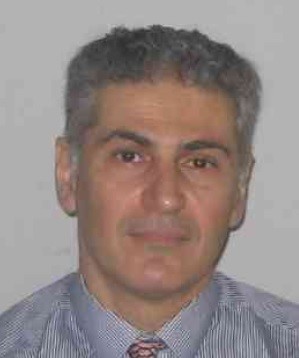Dr. Assaf Mansour
 Name: Assaf Mansour
Name: Assaf Mansour
Position: Associate Professor/ Discipline Coordinator (EE)
Email: mansour.assaf@usp.ac.fj
Phone: (+679) 3232593
 Name: Assaf Mansour
Name: Assaf Mansour
Position: Associate Professor/ Discipline Coordinator (EE)
Email: mansour.assaf@usp.ac.fj
Phone: (+679) 3232593
Biography
Assaf Mansour joined The University of the South Pacific (USP) in 2010. Prior to USP, he was associated with the Centre for Information and Communications Technology, at The University of Trinidad and Tobago (UTT). Before that, he served as a Research Scholar and Lecturer in The School of Information Technology and Engineering of The University of Ottawa (UOO), Ottawa, ON, Canada. He received his Ph.D. in Electrical and Computer Engineering from UOO where he also received his M.A.Sc. in Electrical Engineering and the B.A.Sc. degree in Telecommunications. His research interests are in the areas of computer architecture, mixed-signal analysis, hardware/software co-design and test, fault-tolerant computing, sensor networks, image processing, and RFID technology. He is author of over 82 refereed journal and proceedings papers, 42 of which are with high impact factor, and one book. Assaf is a senior member of the Institute of Electrical and Electronics Engineers (IEEE), a senior member of the Association for Computing Machinery (ACM), a professional member of Engineers New Zealand, and a professional member of Engineers Fiji. He received the 2003 IEEE Donald G. Fink Prize Paper Award.
Interest
Dr. Assaf has a profound interest in fostering innovative research in computer engineering and related fields. His interests include developing advanced technologies for real-time applications, enhancing the integration of higher education and industry, and contributing to the advancement of renewable energy solutions. He is also dedicated to the professional development of engineers and fostering youth empowerment through community service and awareness programs.
Ph.D. in Computer Engineering
School of Information Technology and Engineering, University of Ottawa, Ottawa, Canada (2003)
M.A.Sc. in Electrical Engineering
Ottawa-Carleton Institute for Electrical Engineering, University of Ottawa, Ottawa, Canada (1996)
B.A.Sc. in Electrical Engineering
Department of Electrical and Computer Engineering, University of Ottawa, Ottawa, Canada (1994)
Honours in Applied Physics
Faculty of Science, The Lebanese University, Beirut, Lebanon (1989)
Undergraduate Courses: EE212 (Analog Electronics I), EE224 (Signal & Systems), EE326 (Embedded Systems)
Postgraduate Course: EE492 (Digital Signal Processing), EE467 (Telecommunication Systems and Networks)
Dr. Assaf’s research interests encompass a wide range of topics within computer engineering and technology, including:
2003 IEEE Donald G. Fink Prize Paper Award
Dr. Assaf received this prestigious award in recognition of his outstanding paper, marking a significant achievement and contribution to the field of electrical and electronics engineering.
Journals:
Conferences:
Books:
Assaf M. H., DIGITAL CORE OUTPUT TEST DATA COMPRESSION ARCHITECTURE, VDM Verlag Dr. Muller, ISBN: 978-3-639-19098-4, 2009.
Chapters:
Dr. Assaf has supervised numerous graduate and postgraduate engineering students in their research projects. His supervision has covered a wide range of topics, including real-time applications of AI, renewable energy systems, assistive technologies for individuals with disabilities, and blockchain technologies in education.